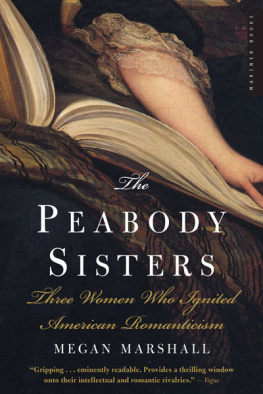CHAPTER I.
CHILDHOOD AND EARLY YOUTH.SCHOOL DAYS.
T he subject of the following sketch, Sarah Margaret Fuller, has already been most fortunate in her biographers. Cut off herself in the prime of life, she left behind her devoted friends who were still in their full vigor of thought and sentiment. Three of these, James Freeman Clarke, Ralph Waldo Emerson, and William Henry Channing, set their hand, some thirty or more years ago, to the happy task of preserving for posterity their strong personal impressions of her character and influence. With these precious reminiscences were interwoven such extracts from her correspondence and diary as were deemed fittest to supply the outline of her own life and experience.
What, it may be asked, can such biographers have left for others to do? To surpass their work is not to be thought of. But, in the turning and perseverance of this planet, present soon becomes past, and that which has been best said asks to be said again. This biography, so rich in its suggestions and so valuable in its details, is already set in a past light by the progress of men and of things. Its theme has lost none of its interest. Nay, it is through the growing interest felt in Margaret and her work that a demand seems to have arisen for a later word about her, which cannot hope to be better or wiser than the words already made public, but which may borrow from them the inspiration for a new study and presentment.
According to the authorities already established, Sarah Margaret Fuller, the child of Timothy Fuller and Margaret Crane, was born at Cambridgeport, near Boston, on the 23d of May, 1810. She has herself given some account of her early life in an autobiographical sketch which forms the prelude to the work already published. Her father, she says, "was a lawyer and a politician," the son of a country clergyman, Harvard-bred both as to his college and his professional studies. She remembers him chiefly as absorbed in the business and interest of his profession, intent upon compassing the support of his family, and achieving such distinction as might prove compatible with that object. Her mother she describes as "one of those fair, flower-like natures, which sometimes spring up even beside the most dusty highways of life,bound by one law with the blue sky, the dew, and the frolic birds." And in the arduous labor of her father's life, his love for this sweet mother "was the green spot on which he stood apart from the commonplaces of a mere bread-winning, bread-bestowing existence."
The case between Margaret and her father is the first to be disposed of in our consideration of her life and character. In the document just quoted from she does not paint him en beau. Here and elsewhere she seems to have been inclined to charge upon him the excessive study which exaggerated her natural precocity of temperament, and the Puritan austerity which brought her ungratified imagination into early conflict with the circumstances and surroundings of her start in life. In a brief preface to the memoir already published, a surviving brother of Margaret characterizes this view of the father as inadequate and unjust.
Margaret herself called her sketch an autobiographical romance, and evidently wrote it at a period of her life in which her personal experience had thrown little light upon the difficulties which parents encounter in the training of their children, and especially in that of their eldest-born.
From the sketch itself we gather that the Fuller household, although not corresponding to the dreams of its wonder-child, had yet in it elements which were most precious for her right growth and development. The family itself was descended from a stock deeply thoughtful and religious. With the impulses of such kindred came to Margaret the strict and thrifty order of primitive New England life, the absence of frivolity, the distaste for all that is paltry and superficial. In after years, her riper judgment must have shown her, as it has shown many, the value of these somewhat stern surroundings. The little Puritan children grew up, it is true, in the presence of a standard of character and of conduct which must have seemed severe to them. The results of such training have shown the world that the child so circumstanced will rise to the height of his teaching. Started on a solid and worthy plane of thought and of motive, he will not condescend to what is utterly mean, base, and trivial, either in motive or in act. If, as may happen, he fail in his first encounters with outside temptation, he will nevertheless severely judge his own follies, and will one day set himself to retrieve them with earnest diligence.
In the instance before us we can feel how bitter may have been the contrast between the child's natural tastes and the realities which surrounded her. Routine and restraint were burdensome to her when as yet she could not know their value. Not the less were they of great importance to her. The surroundings, too, which were devoid of artistic luxury and adornment, forced her to have recourse to the inner sense of beauty, which is sometimes lost and overlaid through much pleasing of the eye and ear.
Childhood, indeed, insists upon having the whole heavenly life unpacked upon the spot. Its to-day knows no to-morrow. Hence its common impatience and almost inevitable quarrel with the older generation, which in its eyes represents privation and correction.
The early plan of studies marked out for Margaret by her father was not devised by any commonplace mind. Mr. Fuller had gained from his own college life that love of culture which is valuable beyond any special attainment. His own scholarship had been more than common, and it became his darling object to transmit to his little daughter all that he himself had gained by study, and as much more as his circumstances would permit. He did indeed make the mistake, common in that day, of urging the tender intellect beyond the efforts proper to its stage of growth. Margaret says that the lessons set for her were "as many and various as the hours would allow, and on subjects far beyond my age." These lessons were recited to her father after office hours; and as these hours were often prolonged, the child's mind was kept in a state of tension until long after the time when the little head should have rested serenely on its pillow. In consequence of this, it often rested very ill, and the youthful prodigy of the daytime was terrified at night by dreams and illusions, and disturbed by sleep-walking. From these efforts and excitements resulted, as she says, "a state of being too active and too intense, which wasted my constitution, and will bring me, although I have learned to understand and to regulate my now morbid temperament, to a premature grave."
This was unhappy, certainly. The keen, active temperament did indeed acquire a morbid intensity, and the young creature thus spurred on to untimely effort began to live and to learn at a pace with which the slowness of circumstance was never able to keep abreast.





